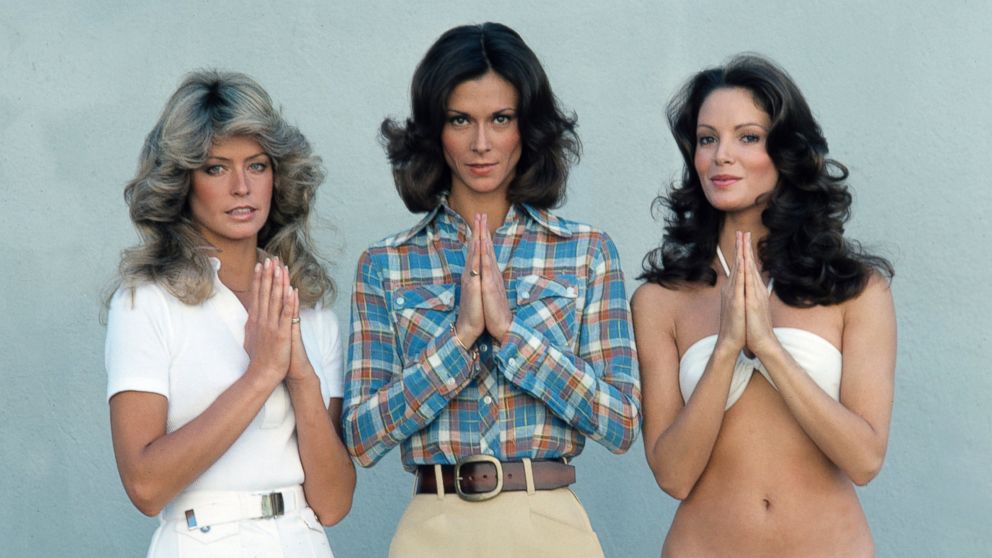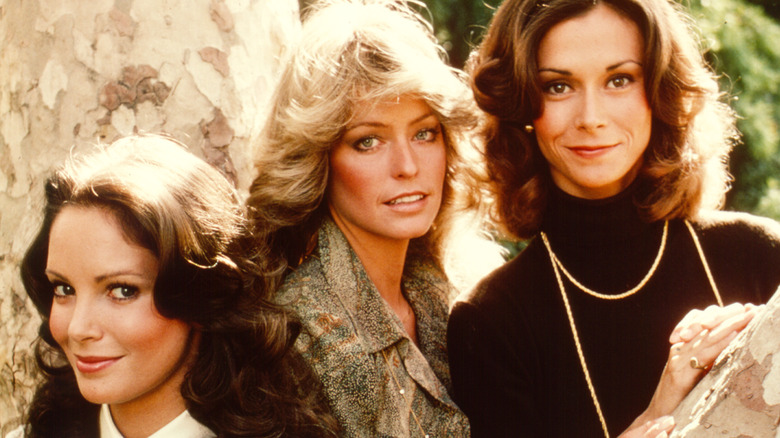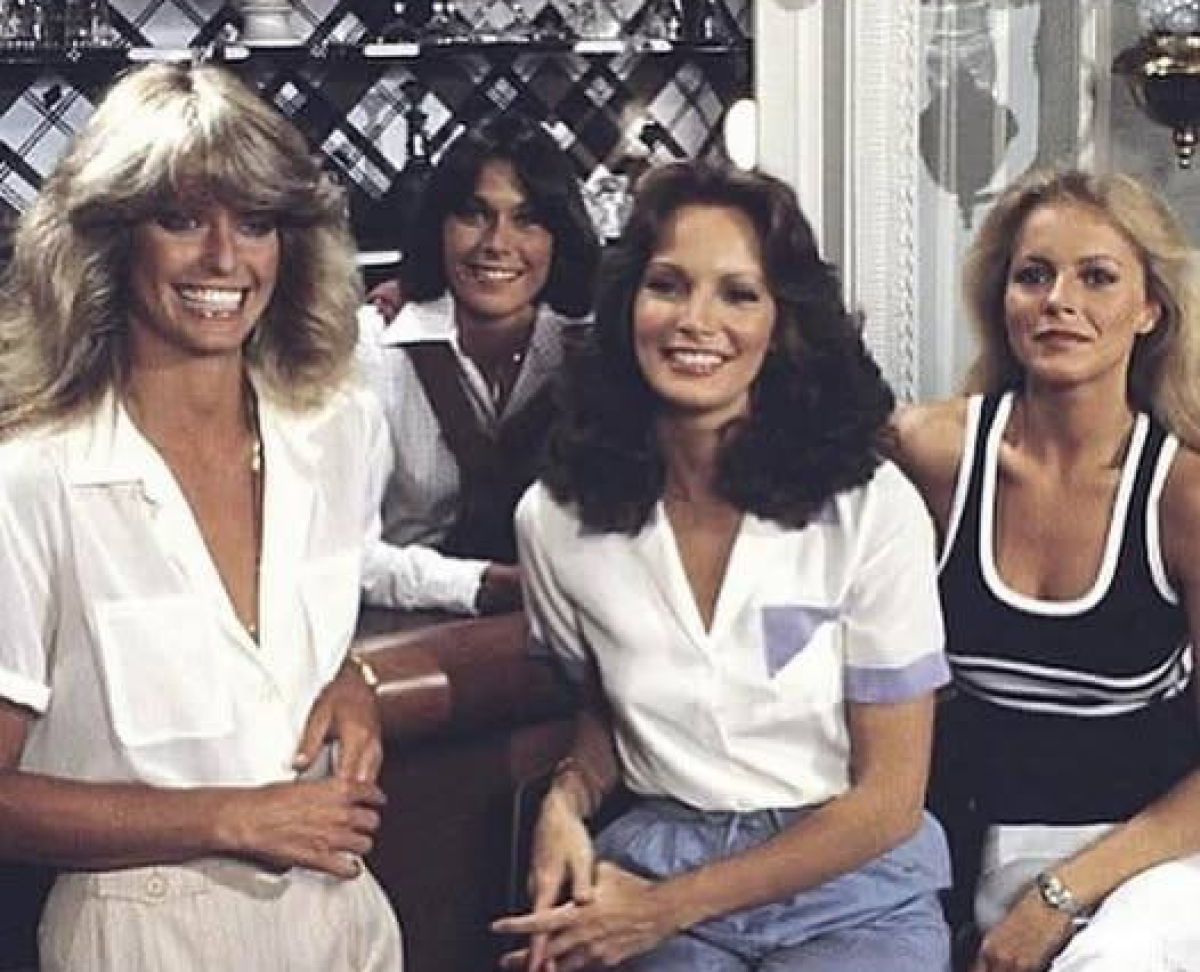Television has long served as a mirror to society, reflecting and shaping cultural norms and expectations. In the mid-1970s, one groundbreaking show emerged that would not only entertain millions but also redefine the archetype of the female hero for generations to come. Charlie’s Angels—with its blend of action, mystery, and glamour—introduced audiences to smart, capable women who defied the prevailing conventions of a male-dominated television landscape. More than just a TV show, it became a cultural milestone that challenged stereotypes, inspired a generation of female viewers, and reshaped the language of empowerment in popular media. This in-depth exploration examines the evolution, impact, and enduring legacy of Charlie’s Angels as a transformative force in the portrayal of female heroes.
I. Historical Context: The Landscape Before Charlie’s Angels
Before the advent of Charlie’s Angels, television heroes were predominantly male. The narratives of action, crime fighting, and adventure typically revolved around rugged, masculine protagonists, with female characters relegated to supporting roles—as damsels in distress or secondary figures lacking agency. This era of programming reinforced a narrow vision of what heroes could look like, leaving little room for the multidimensional portrayal of women.

A. A Limited Scope of Female Representation
In earlier decades, the roles available to women on television were largely confined to domestic spheres. When women did appear in action genres, they were often portrayed as ornaments to male protagonists, their contributions minimized or viewed merely as emotional support. As a result, the notion of women as fierce, independent, and capable heroes had yet to take root in the collective imagination of the viewing public.
B. Shifting Cultural Winds
By the 1970s, the social and political landscape was undergoing dramatic changes. The women’s liberation movement was in full swing, challenging long-standing gender norms and demanding equal representation in all areas of public life. This cultural upheaval provided the fertile ground from which innovative ideas in television could take root. Audiences were increasingly ready for narratives that broke free from traditional gender molds—narratives that could offer new models of strength, intelligence, and independence for women.
II. The Birth of a Revolution: Charlie’s Angels Comes to Life
Debuting in 1976, Charlie’s Angels burst onto the airwaves at a time when the idea of a female-led action series was virtually unheard of. Conceived by Aaron Spelling and Leonard Goldberg, the show centered on a trio of skilled female private investigators working for the mysterious Charles “Charlie” Townsend. The series was heralded not only for its thrilling storylines and dynamic action sequences but also for its radical reimagining of female protagonists.

Michael Ochs Archives/Getty Images
A. Redefining the Role of Women on TV
The Angels—portrayed by charismatic performers such as Farrah Fawcett, Kate Jackson, and Jaclyn Smith—were crafted to embody a new kind of heroism. They were not just sidekicks or love interests; they were the leads, entrusted with solving crimes, engaging in high-octane investigations, and handling dangerous situations with a blend of intelligence and physical prowess. In doing so, the show directly challenged the conventional wisdom that heroism was the exclusive domain of men.
B. A Fusion of Action, Mystery, and Glamour
One of the distinctive features of Charlie’s Angels was its seamless fusion of gritty crime-fighting with glamour and style. The Angels’ fashion, characterized by bold silhouettes, stylish ensembles, and an unapologetic flair for high-impact looks, became iconic. This visual identity was not merely about aesthetics—it was a statement of empowerment. The show communicated that strength and beauty need not be mutually exclusive; instead, they can coexist in a balanced, multifaceted portrayal of femininity.
III. Shattering Stereotypes and Breaking Barriers
Charlie’s Angels fundamentally altered viewers’ perceptions of what women could be on television. By presenting women as proactive, resourceful, and capable of holding their own in dangerous situations, the series shattered enduring stereotypes and paved the way for future representations of female heroes.
A. Portraying Strength Without Sacrificing Femininity
Prior to Charlie’s Angels, the depiction of strong women in media often involved extremes—a rugged, unapproachable demeanor that could border on caricature. Instead, the Angels struck a delicate balance. Their characters were tough enough to engage in physical confrontations and solve complex cases but remained deeply relatable and alluring. This duality resonated with audiences, proving that vulnerability and strength are not mutually exclusive traits.
B. Challenging the Notion of the “Damsel in Distress”
A staple trope in earlier television was the “damsel in distress,” a character type that offered little agency and reinforced gender hierarchies. Charlie’s Angels subverted this model from the outset. Rather than waiting to be rescued, the Angels actively pursued justice, taking the initiative in every mission. Their independence and competence challenged viewers to rethink traditional gender roles, inspiring women to embrace self-reliance and assertiveness in their own lives.
C. Transforming Fashion into a Symbol of Empowerment
Fashion on Charlie’s Angels was not a superficial afterthought. Every outfit, accessory, and stylistic choice was imbued with meaning, serving as a visual metaphor for empowerment. The stylish wardrobe of the Angels became a symbol of control over one’s image and destiny. In many ways, their clothing was a declaration: women can be both fierce and fashionable, commanding respect in boardrooms as effectively as on the battlegrounds of fictional crime scenes.
IV. Cultural Impact & Legacy: Beyond the Screen
The influence of Charlie’s Angels transcended its role as entertainment; it played a critical part in reshaping societal attitudes toward women and their capabilities. The series became a cultural touchstone, with its impact lingering long after the original show went off the air.
A. Inspiring Future Generations and Industry Reboots
Over the decades, Charlie’s Angels has inspired numerous films, reboots, and reimaginings. Each new incarnation pays homage to the original’s groundbreaking approach while updating its themes to resonate with contemporary audiences. The recurring attempts to revive the franchise are a testament to its lasting legacy and its continued relevance in discussions about gender and representation in media.
B. Influencing Workplace and Social Dynamics
By spotlighting strong, multifaceted female characters, Charlie’s Angels not only transformed television narratives but also influenced broader societal views on female empowerment. The show contributed to a gradual shift in workplace dynamics and social norms, encouraging organizations to embrace gender diversity and recognize the value of female leadership. Its cultural resonance helped lay the groundwork for later movements demanding equality and representation across all sectors.
C. A Catalyst for Change in Media Representation
The legacy of Charlie’s Angels is also evident in the way television and film portray female heroes today. Modern action shows and blockbuster movies increasingly feature women in leading roles, drawing inspiration from the model set by the Angels. Today’s heroines are complex, independent, and unapologetically strong—a portrayal that can trace its roots back to the pioneering work of this groundbreaking series.
V. Enduring Influence: The Timeless Appeal of a Cultural Milestone
More than four decades have passed since Charlie’s Angels first captivated audiences, yet its influence endures. Its portrayal of women as both strong and stylish continues to inspire new generations, both on-screen and off.
A. Empowerment Through Representation
Representation matters. For many women, seeing characters on television who defied limiting stereotypes offered a powerful affirmation of their own potential. The narrative that women can be leaders, both in fictional realms and in real-world endeavors, has contributed to broader societal shifts in gender norms. Charlie’s Angels provided a visual and narrative counterpoint to decades of marginalization, proving that popular media can be a force for social change.
B. The Lessons of Resilience and Independence
At its core, the legacy of Charlie’s Angels is about resilience and independence. The Angels’ unyielding spirit in the face of adversity remains an enduring source of inspiration, encouraging viewers to overcome obstacles and to define their paths regardless of societal expectations. This message of self-determination has found resonance in countless personal stories and continues to inspire women to lead lives marked by courage and tenacity.
C. Ongoing Relevance in a Changing World
In today’s rapidly evolving cultural landscape, debates about gender and equality are more vibrant than ever. The pioneering work of Charlie’s Angels remains deeply relevant as a touchstone for discussions about how far society has come—and how far it still has to go—in achieving true gender parity. Its legacy reminds us that change is possible when bold ideas challenge entrenched norms and when diverse voices are given the opportunity to redefine what it means to be a hero.
VI. Conclusion: A Legacy of Strength, Intelligence, and Style
Charlie’s Angels is much more than a television show—it is a revolutionary force that transformed the portrayal of female heroes on screen. By presenting women who were intelligent, resourceful, and capable of formidable action, the series broke barriers that had long confined female characters to limited roles. The combination of brilliant performances by icons such as Farrah Fawcett, Kate Jackson, and Jaclyn Smith; the innovative blending of action with glamour; and the show’s bold challenge to the prevailing gender norms all contributed to a lasting cultural impact.
Today, the legacy of Charlie’s Angels continues to inspire. It stands as a testament to the idea that strength, intelligence, and style are not mutually exclusive qualities but interlocking virtues that can redefine leadership and heroism. More than a TV show, Charlie’s Angels has become a cultural milestone—an enduring symbol of female empowerment that encourages every viewer to break boundaries and to embrace their own unique power.
In a world where representation and equality remain pressing issues, the pioneering vision of Charlie’s Angels serves as a reminder of the transformative potential of storytelling. It teaches us that when women are given the space to lead and innovate, not only do they shatter stereotypes—they create entirely new paradigms of possibility for all.

